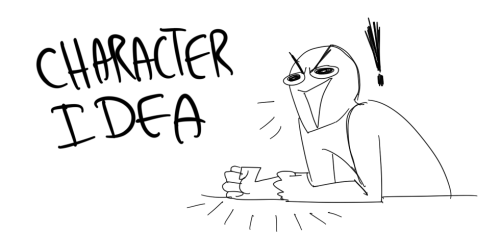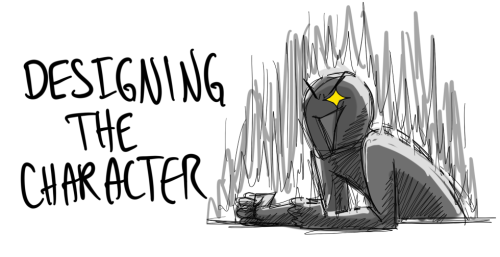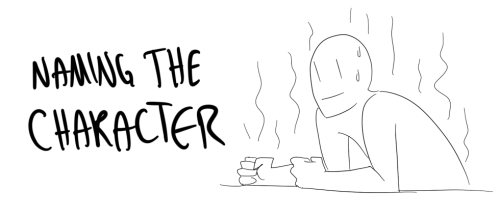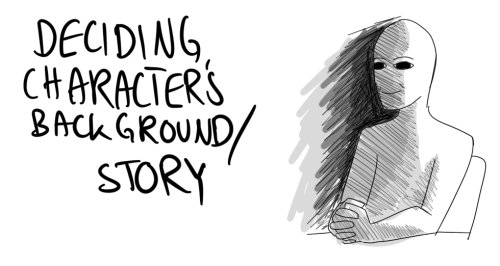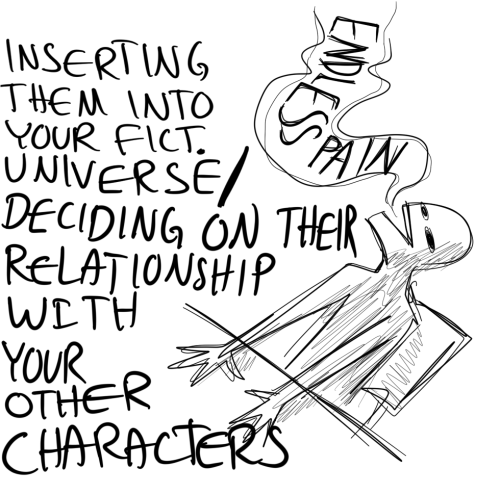How To Write A Girldad
How do I write a girldad? Because I saw a severe lack of girldad prompts in your writing prompts.
How to write a girldad
To create a multidimensional girldad character there are some things to consider:
Make the character show love and attention to his daughter(s).
He is proud of everything his daughters do and encourage them to achieve their dreams and simply do what they want to do.
Listening to his daughters concerns, and giving advice if it is wanted.
Being protective of his daughters, but knowing that they also need to respect their independence and the decisions they make.
Being involved in their lives, knowing who their friends are and how they are doing in school and in sports.
Treating other women in his life with respect, showing his daughters the right standard.
That the daughters are getting older may be difficult for the girldad, but he copes and learns to adapt to their new lives.
How to show their good relationship:
Including light-hearted and playful conversations to show their close bond.
Giving them sincere and loving exchanges.
Showing everyday interactions, like discussing school, friends, or plans for the weekend.
Having him give attention and affection to his daughters even in public.
Showing that the daughter's female friends also feel comfortable with the dad.
Having them share a hobby, especially one that is considered more feminine.
More: Masterpost: How to write a story
I hope you have fun with this! I'm thinking about making a prompt list for a girldad, so maybe there is something coming in the future.
- Jana
More Posts from Sparklingsilvermagnolias and Others
How a Character’s Anger Can Show Up Quietly
Anger doesn’t always slam doors. Sometimes it simmers. Sometimes it cuts.
╰ They go still. Not calm... still. Like something is pulling tight inside them.
╰ They smile, but their eyes? Cold. Flat. Done.
╰ Their voice gets quieter, not louder. Controlled. Measured. Weaponized.
╰ They ask questions they already know the answers to, just to watch someone squirm.
╰ Their words are clipped. Polite. But razor-sharp.
╰ They laugh once. Without humor. You know the one.
╰ They leave the room without explanation, and when they come back? Different energy. Ice where fire was.
10 Traits That Make a Character Secretly Dangerous
❥ Disarming Humor. They’re the life of the party. Everyone’s laughing. No one’s noticing how much they aren’tsaying.
❥ Laser-Sharp Observation. They see everything. Who’s nervous. Who’s lying. Who would be easiest to break. And they don’t miss.
❥ Unsettling Calm. Even in chaos, they stay still. Smiling. Thinking. Calculating.
❥ Weaponized Empathy. They know how to make people trust them. Because they know exactly what people want to hear.
❥ Compartmentalization. They can do something brutal, then eat lunch like nothing happened.
❥ Controlling Niceness. The kind of kindness that’s sharp-edged. You feel guilty for not loving them.
❥ Mirroring Behavior. They become whatever the person in front of them needs. It's not flattery. It’s survival—or manipulation.
❥ Selective Vulnerability. They know how to spill just enough pain to make you drop your guard.
❥ History of “Bad Luck”. Ex-friends, ex-lovers, ex-colleagues… they all left under “unfortunate” circumstances. But the pattern says otherwise.
❥ Unshakeable Confidence in Their Morality. They don’t think they’re the villain. That makes them scarier.
How to Write Better Villains (Because Your Story Deserves One)
There’s nothing worse than a forgettable villain. You know the type: cartoonishly evil for no reason, monologuing their master plan to no one in particular, and vanishing from memory the second you finish the book. A great villain, though? They haunt your thoughts, challenge your hero, and—sometimes—you catch yourself *agreeing with them*. If you want to level up your storytelling, here’s how to craft villains that stick.
1. Give them a reason to be bad (and make it make sense)
Nobody wakes up one day and just decides to be evil (unless they’re in a Saturday morning cartoon). Real people are shaped by their pasts, fears, and desires—and your villains should be, too. Maybe they believe they’re saving the world, just in a way that costs too much. Maybe they were betrayed and now trust no one. Whatever the case, give them a *why*. Even better? Make your readers *understand* that why, even if they don’t agree with it.
2. Avoid the evil-for-evil’s-sake trope
Mustache twirling is out. Complexity is in. A villain who kicks puppies just to prove they’re the bad guy is boring. But a villain who feeds stray dogs while orchestrating a political coup? *That’s* compelling. The best antagonists aren’t evil—they’re driven. And when their goals put them in direct conflict with the hero, *that’s* where the tension comes from. Let them think they’re the hero of their own story.
3. Let your villain challenge the protagonist in meaningful ways
Your villain shouldn’t just be a physical threat—they should challenge your hero’s beliefs, force them to make hard choices, and maybe even make them question themselves. When the antagonist represents a deeper, thematic opposite to the protagonist, you’ve got literary gold. Think of how The Joker unravels Batman’s moral code, or how Killmonger forces T’Challa to reconsider Wakanda’s isolationism. Conflict isn’t just punches—it’s philosophy.
4. Make them unforgettable
Whether it’s a chilling line of dialogue, an eerie calmness, or a twisted sense of humor, give your villain something *distinct*. Personality matters. A unique voice, a specific mannerism, or an unexpected vulnerability can elevate your villain from “meh” to “iconic.” Think about what makes them tick—and what makes them *memorable*.
5. Don’t be afraid to make them right
The scariest villains are the ones who are *almost* right. When a reader can see where they’re coming from—or even agree with some of their points—that’s powerful. It creates tension not just in the story, but in the reader’s own mind. And that’s exactly what a good villain should do: make you question, make you uncomfortable, and make the story impossible to forget.
What are some of your favorite villains in fiction? Drop your favs (or your own villain WIPs) in the tags or replies—I’d love to see them!
Emotional Walls Your Character Has Built (And What Might Finally Break Them)
(How your character defends their soft core and what could shatter it) Because protection becomes prison real fast.
✶ Sarcasm as armor. (Break it with someone who laughs gently, not mockingly.) ✶ Hyper-independence. (Break it with someone who shows up even when they’re told not to.) ✶ Stoicism. (Break it with a safe space to fall apart.) ✶ Flirting to avoid intimacy. (Break it with real vulnerability they didn’t see coming.) ✶ Ghosting everyone. (Break it with someone who won’t take silence as an answer.) ✶ Lying for convenience. (Break it with someone who sees through them but stays anyway.) ✶ Avoiding touch. (Break it with accidental, gentle contact that feels like home.) ✶ Oversharing meaningless things to hide real depth. (Break it with someone who asks the second question.) ✶ Overworking. (Break it with forced stillness and the terrifying sound of their own thoughts.) ✶ Pretending not to care. (Break it with a loss they can’t fake their way through.) ✶ Avoiding mirrors. (Break it with a quiet compliment that hits too hard.) ✶ Turning every conversation into a joke. (Break it with someone who doesn’t laugh.) ✶ Being everyone’s helper. (Break it when someone asks what they need, and waits for an answer.) ✶ Constantly saying “I’m fine.” (Break it when they finally scream that they’re not.) ✶ Running. Always running. (Break it with someone who doesn’t chase, but doesn’t leave, either.) ✶ Intellectualizing every feeling. (Break it with raw, messy emotion they can’t logic away.) ✶ Trying to be the strong one. (Break it when someone sees the weight they’re carrying, and offers to help.) ✶ Hiding behind success. (Break it when they succeed and still feel empty.) ✶ Avoiding conflict at all costs. (Break it when silence causes more pain than the truth.) ✶ Focusing on everyone else’s healing but their own. (Break it when they hit emotional burnout.)
Ursula K. Le Guin on How to Become a Writer.

How do you become a writer? Answer: you write.
It’s amazing how much resentment and disgust and evasion this answer can arouse. Even among writers, believe me. It is one of those Horrible Truths one would rather not face.
The most frequent evasive tactic is for the would-be writer to say, But before I have anything to say, I must get experience.
Well, yes; if you want to be a journalist. But I don’t know anything about journalism, I’m talking about fiction. And of course fiction is made out of experience, your whole life from infancy on, everything you’ve thought and done and seen and read and dreamed. But experience isn’t something you go and get—it’s a gift, and the only prerequisite for receiving it is that you be open to it. A closed soul can have the most immense adventures, go through a civil war or a trip to the moon, and have nothing to show for all that “experience”; whereas the open soul can do wonders with nothing. I invite you to meditate on a pair of sisters. Emily and Charlotte. Their life experience was an isolated vicarage in a small, dreary English village, a couple of bad years at a girls’ school, another year or two in Brussels, which is surely the dullest city in all Europe, and a lot of housework. Out of that seething mass of raw, vital, brutal, gutsy Experience they made two of the greatest novels ever written: Jane Eyre and Wuthering Heights.
Now, of course they were writing from experience; writing about what they knew, which is what people always tell you to do; but what was their experience? What was it they knew? Very little about “life.” They knew their own souls, they knew their own minds and hearts; and it was not a knowledge lightly or easily gained. From the time they were seven or eight years old, they wrote, and thought, and learned the landscape of their own being, and how to describe it. They wrote with the imagination, which is the tool of the farmer, the plow you plow your own soul with. They wrote from inside, from as deep inside as they could get by using all their strength and courage and intelligence. And that is where books come from. The novelist writes from inside.
I’m rather sensitive on this point, because I write science fiction, or fantasy, or about imaginary countries, mostly—stuff that, by definition, involves times, places, events that I could not possibly experience in my own life. So when I was young and would submit one of these things about space voyages to Orion or dragons or something, I was told, at extremely regular intervals, “You should try to write about things you know about.” And I would say, But I do; I know about Orion, and dragons, and imaginary countries. Who do you think knows about my own imaginary countries, if I don’t?
But they didn’t listen, because they don’t understand, they have it all backward. They think an artist is like a roll of photographic film, you expose it and develop it and there is a reproduction of Reality in two dimensions. But that’s all wrong, and if any artist tells you, “I am a camera,” or “I am a mirror,” distrust them instantly, they’re fooling you, pulling a fast one. Artists are people who are not at all interested in the facts—only in the truth. You get the facts from outside. The truth you get from inside.
OK, how do you go about getting at that truth? You want to tell the truth. You want to be a writer. So what do you do?
You write.
Honestly, why do people ask that question? Does anybody ever come up to a musician and say, Tell me, tell me—how should I become a tuba player? No! It’s too obvious. If you want to be a tuba player you get a tuba, and some tuba music. And you ask the neighbors to move away or put cotton in their ears. And probably you get a tuba teacher, because there are quite a lot of objective rules and techniques both to written music and to tuba performance. And then you sit down and you play the tuba, every day, every week, every month, year after year, until you are good at playing the tuba; until you can—if you desire—play the truth on the tuba.
It is exactly the same with writing. You sit down and you do it, and you do it, and you do it, until you have learned how to do it.
Of course, there are differences. Writing makes no noise, except groans, and it can be done anywhere, and it is done alone.
It is the experience or premonition of that loneliness, perhaps, that drives a lot of young writers into this search for rules. I envy musicians very much, myself. They get to play together, their art is largely communal; and there are rules to it, an accepted body of axioms and techniques, which can be put into words or at least demonstrated, and so taught. Writing cannot be shared, nor can it be taught as a technique, except on the most superficial level. All a writer’s real learning is done alone, thinking, reading other people’s books, or writing—practicing. A really good writing class or workshop can give us some shadow of what musicians have all the time—the excitement of a group working together, so that each member outdoes himself—but what comes out of that is not a collaboration, a joint accomplishment, like a string quartet or a symphony performance, but a lot of totally separate, isolated works, expressions of individual souls. And therefore there are no rules, except those each individual makes up.
I know. There are lots of rules. You find them in the books about The Craft of Fiction and The Art of the Short Story and so on. I know some of them. One of them says: Never begin a story with dialogue! People won’t read it; here is somebody talking and they don’t know who and so they don’t care, so—Never begin a story with dialogue.
Well, there is a story I know, it begins like this:
“Eh bien, mon prince! so Genoa and Lucca are now no more than private estates of the Bonaparte family!”
It’s not only a dialogue opening, the first four words are in French, and it’s not even a French novel. What a horrible way to begin a book! The title of the book is War and Peace.
There’s another Rule I know: introduce all the main characters early in the book. That sounds perfectly sensible, mostly I suppose it is sensible, but it’s not a rule, or if it is somebody forgot to tell it to Charles Dickens. He didn’t get Sam Weller into The Pickwick Papers for ten chapters—that’s five months, since the book was coming out as a serial in installments.
Now, you can say, All right, so Tolstoy can break the rules, so Dickens can break the rules, but they’re geniuses; rules are made for geniuses to break, but for ordinary, talented, not-yet-professional writers to follow, as guidelines.
And I would accept this, but very very grudgingly, and with so many reservations that it amounts in the end to nonacceptance. Put it this way: if you feel you need rules and want rules, and you find a rule that appeals to you, or that works for you, then follow it. Use it. But if it doesn’t appeal to you or doesn’t work for you, then ignore it; in fact, if you want to and are able to, kick it in the teeth, break it, fold staple mutilate and destroy it.
See, the thing is, as a writer you are free. You are about the freest person that ever was. Your freedom is what you have bought with your solitude, your loneliness. You are in the country where you make up the rules, the laws. You are both dictator and obedient populace. It is a country nobody has ever explored before. It is up to you to make the maps, to build the cities. Nobody else in the world can do it, or ever could do it, or ever will be able to do it again.
Excerpted from THE LANGUAGE OF THE NIGHT by Ursula K. Le Guin. Copyright © 1989 by Ursula K. Le Guin.
I recommend Le Guin's book about writing, Steering the Craft:

Hey, random writing tip: Instead of having something be a ridiculously unlikely coincidence, you can make the thing happen due to who this particular character is as a person. Instead of getting stuck on "there's no logical reason to why that would happen", try to bend it into a case of "something like this would never happen to anybody but this specific fucker." Something that makes your reader chuckle and roll their eyes, going "well of course you would."
Why would the timid shy nerd be at a huge sketchy downtown black market bazaar? Well, she's got this beetle colony she's raising that needs a very specific kind of leaf for nest material, and there only place to get it is this one guy at the bazaar that sells that stuff. Why would the most femininely flamboyant guy ever known just happen to have downright encyclopedic knowledge about professional boxing? Well, there was this one time when he was down bad for this guy who was an aspiring professional boxer...
I know it sounds stupidly obvious when written out like this, but when you're up close to your writing, it's hard to see the forest for the trees. Some time ago I finished reading a book, where the whole plot hinges on character A, who is 100% certain that character B is dead, personally getting up and coming down from the top rooms of a castle, to the gates, at 3 am, to come look at some drunk who claims to be this guy who died 17 years ago. Why would A do that, if he's sure that B is dead?
Because he's a Warrior Guy from a culture of Loyalty And Honour, and hearing that someone's got the audacity to go about claiming to be his long-lost brother in battle, there is no other option than to immediately personally go down there to beat the ever-loving shit out of this guy. Who then turns out to actually be character B, after all.
Other Words for "Look" + With meanings | List for writers
Many people create lists of synonyms for the word 'said,' but what about the word 'look'? Here are some synonyms that I enjoy using in my writing, along with their meanings for your reference. While all these words relate to 'look,' they each carry distinct meanings and nuances, so I thought it would be helpful to provide meanings for each one.
Gaze - To look steadily and intently, especially in admiration or thought.
Glance - A brief or hurried look.
Peek - A quick and typically secretive look.
Peer - To look with difficulty or concentration.
Scan - To look over quickly but thoroughly.
Observe - To watch carefully and attentively.
Inspect - To look at closely in order to assess condition or quality.
Stare - To look fixedly or vacantly at someone or something.
Glimpse - To see or perceive briefly or partially.
Eye - To look or stare at intently.
Peruse - To read or examine something with great care.
Scrutinize - To examine or inspect closely and thoroughly.
Behold - To see or observe a thing or person, especially a remarkable one.
Witness - To see something happen, typically a significant event.
Spot - To see, notice, or recognize someone or something.
Contemplate - To look thoughtfully for a long time at.
Sight - To suddenly or unexpectedly see something or someone.
Ogle - To stare at in a lecherous manner.
Leer - To look or gaze in an unpleasant, malicious way.
Gawk - To stare openly and stupidly.
Gape - To stare with one's mouth open wide, in amazement.
Squint - To look with eyes partially closed.
Regard - To consider or think of in a specified way.
Admire - To regard with pleasure, wonder, and approval.
Skim - To look through quickly to gain superficial knowledge.
Reconnoiter - To make a military observation of a region.
Flick - To look or move the eyes quickly.
Rake - To look through something rapidly and unsystematically.
Glare - To look angrily or fiercely.
Peep - To look quickly and secretly through an opening.
Focus - To concentrate one's visual effort on.
Discover - To find or realize something not clear before.
Spot-check - To examine something briefly or at random.
Devour - To look over with eager enthusiasm.
Examine - To inspect in detail to determine condition.
Feast one's eyes - To look at something with great enjoyment.
Catch sight of - To suddenly or unexpectedly see.
Clap eyes on - To suddenly see someone or something.
Set eyes on - To look at, especially for the first time.
Take a dekko - Colloquial for taking a look.
Leer at - To look or gaze in a suggestive manner.
Rubberneck - To stare at something in a foolish way.
Make out - To manage to see or read with difficulty.
Lay eyes on - To see or look at.
Pore over - To look at or read something intently.
Ogle at - To look at in a lecherous or predatory way.
Pry - To look or inquire into something in a determined manner.
Dart - To look quickly or furtively.
Drink in - To look at with great enjoyment or fascination.
Bask in - To look at or enjoy something for a period of time.


-
 sparklingsilvermagnolias reblogged this · 1 week ago
sparklingsilvermagnolias reblogged this · 1 week ago -
 marvelflame2010 reblogged this · 1 week ago
marvelflame2010 reblogged this · 1 week ago -
 70yuts liked this · 1 week ago
70yuts liked this · 1 week ago -
 kaylaiscool liked this · 2 weeks ago
kaylaiscool liked this · 2 weeks ago -
 rabies-and-fleas liked this · 2 weeks ago
rabies-and-fleas liked this · 2 weeks ago -
 kereesa07 liked this · 2 weeks ago
kereesa07 liked this · 2 weeks ago -
 malerd liked this · 2 weeks ago
malerd liked this · 2 weeks ago -
 ironweedhills liked this · 2 weeks ago
ironweedhills liked this · 2 weeks ago -
 joyfulmoon-ao3 reblogged this · 3 weeks ago
joyfulmoon-ao3 reblogged this · 3 weeks ago -
 joyfulmoon-ao3 liked this · 3 weeks ago
joyfulmoon-ao3 liked this · 3 weeks ago -
 eon-tries liked this · 3 weeks ago
eon-tries liked this · 3 weeks ago -
 behebdhdhdh reblogged this · 1 month ago
behebdhdhdh reblogged this · 1 month ago -
 behebdhdhdh liked this · 1 month ago
behebdhdhdh liked this · 1 month ago -
 holyfuckfinn liked this · 1 month ago
holyfuckfinn liked this · 1 month ago -
 storiesbyemma liked this · 1 month ago
storiesbyemma liked this · 1 month ago -
 waqtzayaontmblr liked this · 1 month ago
waqtzayaontmblr liked this · 1 month ago -
 hailsb liked this · 1 month ago
hailsb liked this · 1 month ago -
 sj-onlineagain liked this · 1 month ago
sj-onlineagain liked this · 1 month ago -
 heartavenue liked this · 1 month ago
heartavenue liked this · 1 month ago -
 minecraftcreepercat liked this · 1 month ago
minecraftcreepercat liked this · 1 month ago -
 mothywings liked this · 1 month ago
mothywings liked this · 1 month ago -
 pain-in-the-ashe liked this · 1 month ago
pain-in-the-ashe liked this · 1 month ago -
 snow-blower liked this · 1 month ago
snow-blower liked this · 1 month ago -
 garry34 liked this · 1 month ago
garry34 liked this · 1 month ago -
 redhearts00 liked this · 1 month ago
redhearts00 liked this · 1 month ago -
 grimmintention liked this · 1 month ago
grimmintention liked this · 1 month ago -
 hereforonce liked this · 1 month ago
hereforonce liked this · 1 month ago -
 darkfairiefey liked this · 1 month ago
darkfairiefey liked this · 1 month ago -
 wherethegoldenleavesfall liked this · 1 month ago
wherethegoldenleavesfall liked this · 1 month ago -
 mr-capgras-syndrome reblogged this · 1 month ago
mr-capgras-syndrome reblogged this · 1 month ago -
 ringa-starr reblogged this · 1 month ago
ringa-starr reblogged this · 1 month ago -
 thegreatkirablack liked this · 1 month ago
thegreatkirablack liked this · 1 month ago -
 lilalulalalay liked this · 1 month ago
lilalulalalay liked this · 1 month ago -
 crazycouchpotato45 liked this · 1 month ago
crazycouchpotato45 liked this · 1 month ago -
 miishta liked this · 1 month ago
miishta liked this · 1 month ago -
 ashley-erb liked this · 1 month ago
ashley-erb liked this · 1 month ago -
 skrunklymoo liked this · 1 month ago
skrunklymoo liked this · 1 month ago -
 uwulaine liked this · 1 month ago
uwulaine liked this · 1 month ago -
 idlemindeds liked this · 1 month ago
idlemindeds liked this · 1 month ago -
 scribblesquid077 liked this · 1 month ago
scribblesquid077 liked this · 1 month ago -
 traditionallydigitalbear01 liked this · 1 month ago
traditionallydigitalbear01 liked this · 1 month ago -
 bisexydesaster reblogged this · 1 month ago
bisexydesaster reblogged this · 1 month ago -
 absintheofmalice reblogged this · 1 month ago
absintheofmalice reblogged this · 1 month ago -
 alibabie liked this · 1 month ago
alibabie liked this · 1 month ago -
 nashiri liked this · 1 month ago
nashiri liked this · 1 month ago -
 fortunadriven liked this · 1 month ago
fortunadriven liked this · 1 month ago -
 rabidrobotrabbit liked this · 1 month ago
rabidrobotrabbit liked this · 1 month ago -
 doodleace7 liked this · 1 month ago
doodleace7 liked this · 1 month ago -
 skullzsection liked this · 1 month ago
skullzsection liked this · 1 month ago -
 fukuromates liked this · 1 month ago
fukuromates liked this · 1 month ago

119 posts
